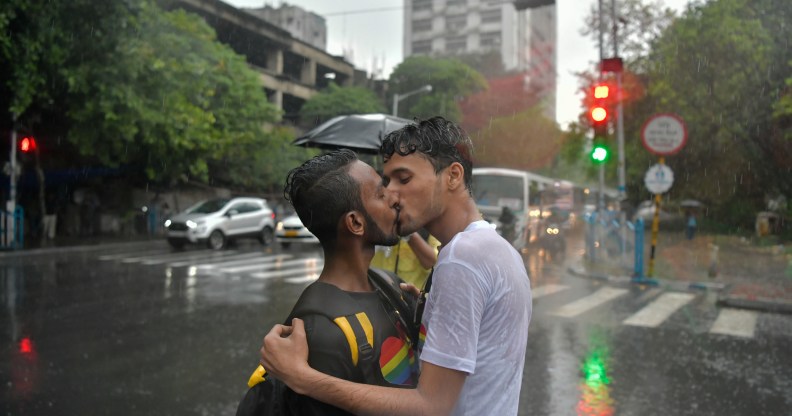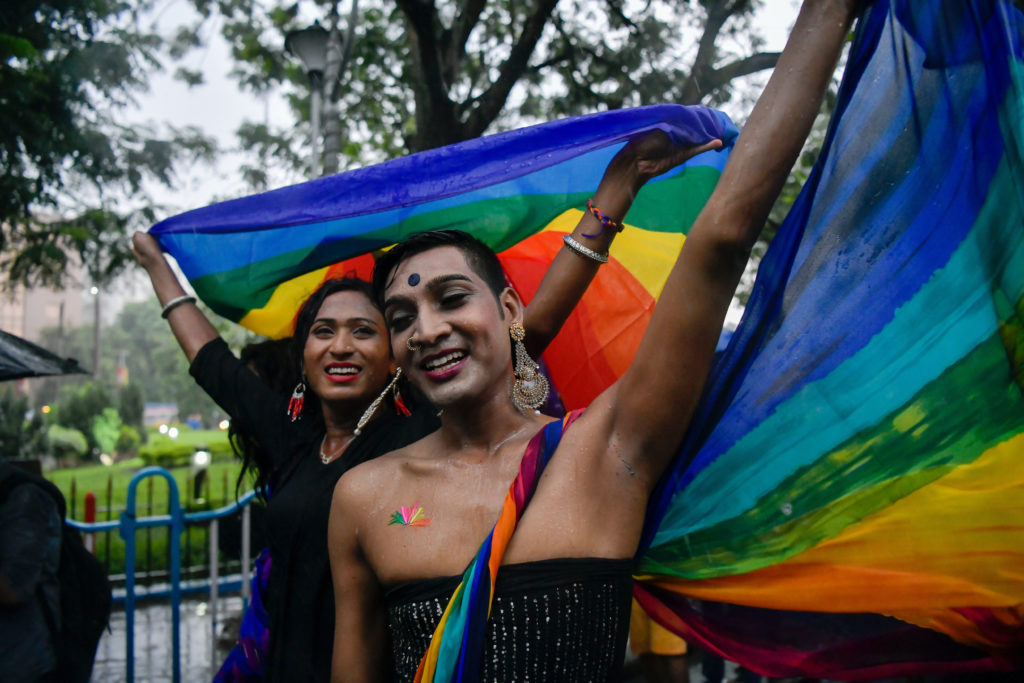Indian high court dismisses plea for gay marriage

Two men kiss during a Pride event in Kolkata. (Getty)
The Delhi High Court has turned down a plea urging it recognise equal marriage and other LGBT+ rights in India.
The court had been asked to amend the Hindu Marriage Act and other family laws in order to usher in equal marriage and adoption rights, The Statesman reported on Monday (July 8).
Tajinder Singh, the petitioner, argued “the constitution treats everyone equally without any discrimination. It is the duty of the state to ensure that no one should be discriminated.”
Chief Justice D.N. Patel and Justice C. Harishankar turned down the request, arguing that the court was not in the business of drafting laws.
Singh had also asked that the court form a committee to look into LGBT+ rights.
In its ruling, the court said that while it would not do this, the government is free to form such a body.
“It is incumbent upon the legislature and not the court to recognise the familial relations of LGBTQ community,” the court said, according to Live Law correspondent Karan Tripathi.
Gay sex decriminalised in India
Gay sex was decriminalised by India’s Supreme Court in September 2018.
Under a colonial-era law, men, women or non-binary people who had same-sex relations faced up to life in prison.
History owes an apology to the members of this community.
The law was briefly repealed in 2009 after the Delhi High Court ruled that it violated citizens’ human rights.
The Supreme Court reversed this ruling in 2013, before changing tack with a unanimous decision to decriminalise in 2018.
“History owes an apology to the members of this community and their families, for the delay in providing redressal for the ignominy and ostracism that they have suffered through the centuries,” Justice Indu Malhotra wrote in her judgment.

LGBT+ community members celebrate with a rainbow coloured flag in Kolkata. (Getty)
Despite this legal victory, LGBT+ people in India still face discrimination from society, with half remaining in the closet.
“Many people still have the mentality that homosexuality is wrong,” Kiran Bobby from the Naz Foundation told the BBC in March.
“We’re still fighting for our rights. We need marriage rights, we need rights to adopt.”
Bobby said that Delhi can be particularly dangerous for trans women such as herself, recalling a time when five men pulled her into a car in what she suspected was a rape attempt.

